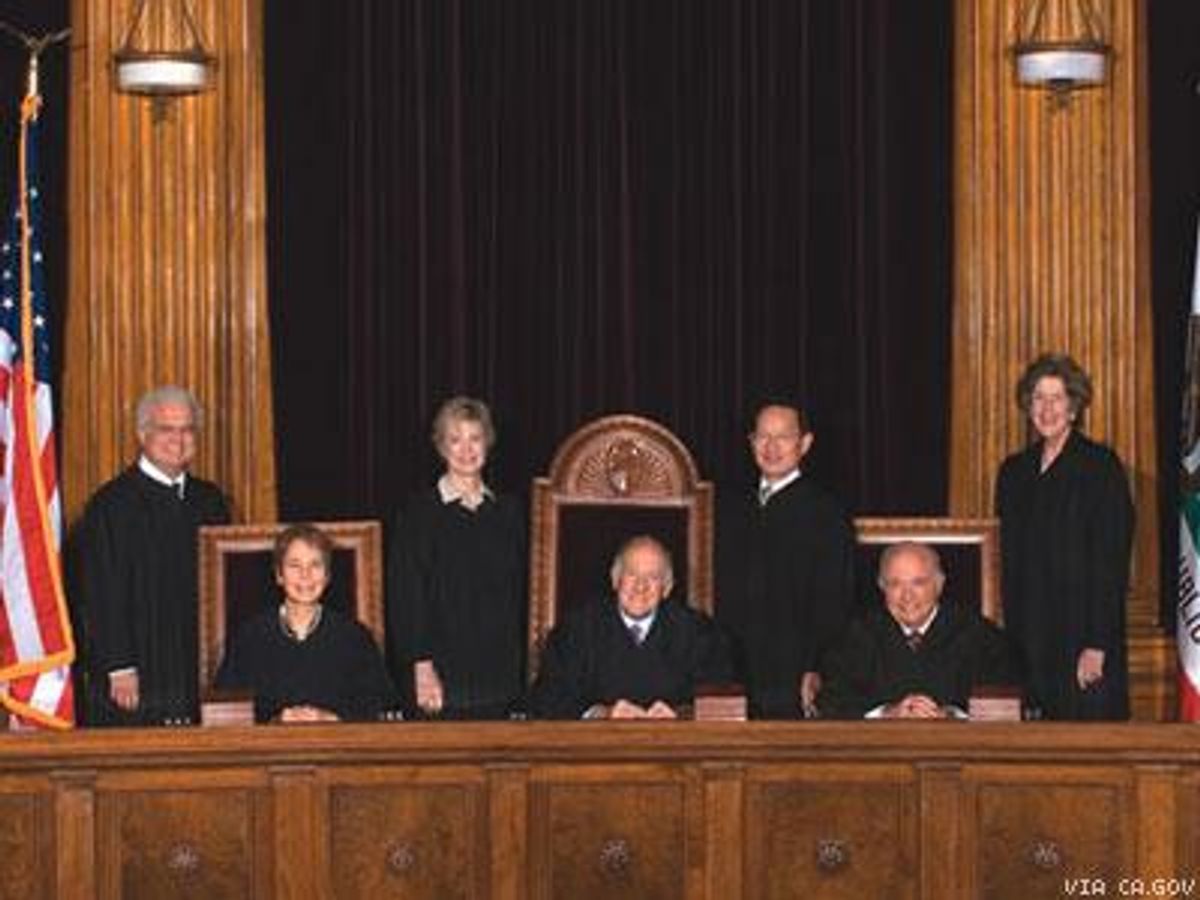The California Supreme Court rejected a request from the supporters of Proposition 8 to halt same-sex weddings in the Golden State on Monday, reports Reuters. As such, county clerks throughout California will continue to issue marriage licenses to eligible same-sex couples.
The petition was filed last week by ProtectMarriage, the anti-gay marriage group that got Prop. 8 on the ballot in 2009. It was the latest effort in a stream of last-ditch attempts to revoke marriage equality in California in the wake of a June 26 ruling from the Supreme Court of the United States, which found that ProtectMarriage had no legal right to defend the initiative in court when two sets of state governors and attorneys general refused to do so.
"Our opponents have failed in a desperate attempt to deny happiness and protections to lesbian and gay couples and their children and no amount of legal wrangling is going to undo that joy," said Human Rights Campaign President Chad Griffin, who also founded the American Foundation for Equal Rights, the organization that took the Prop. 8 challenge to the Supreme Court. "Marriage equality has returned to the Golden State and just as David Blankenhorn, the star witness for Prop. 8 came to support marriage equality, I hope others will open their hearts and minds and realize that marriage will soon come to all 50 states in this country. On that day we will all be more American."
The U.S. Supreme Court also denied a petition from ProtectMarriage filed in federal court last month that argued the federal Ninth Curcuit Court of Appeals erred when it allowed marriage equality to resume in California before the standard 25-day waiting period usually required to certify Supreme Court decisions. Supreme Court Justice Anthony Kennedy, who did not rule with the majority that overturned Prop. 8 on a technicality, nonetheless flatly dismissed the antigay activists' claims.
While the state supreme court rejected the initial petition, the Los Angeles Times reports that the court will consider ProtectMarriage's claim that the initial federal district court ruling, issued in 2010 by Judge Vaughn Walker, does not apply statewide. That decision is not expected until August, according to the Times.



















































































Fans thirsting over Chris Colfer's sexy new muscles for Coachella